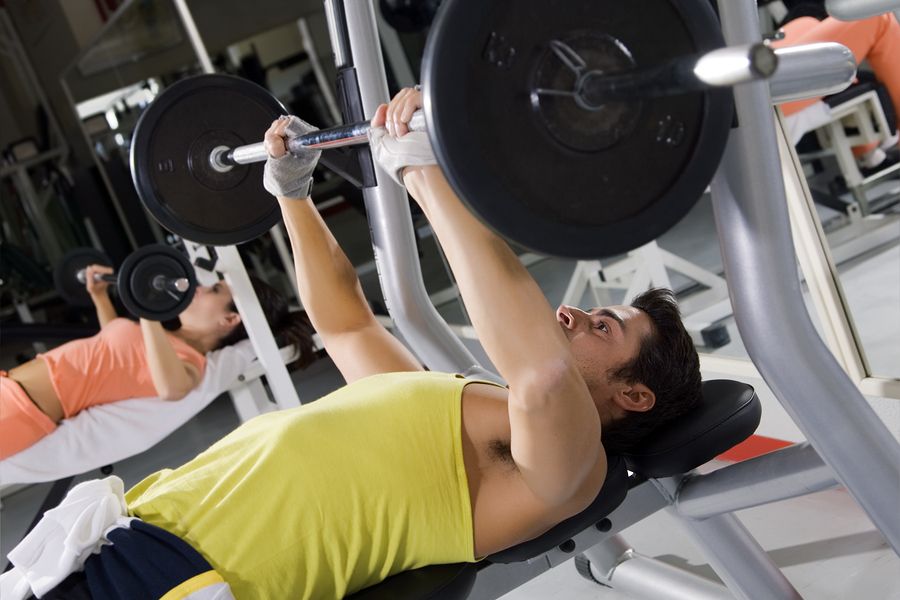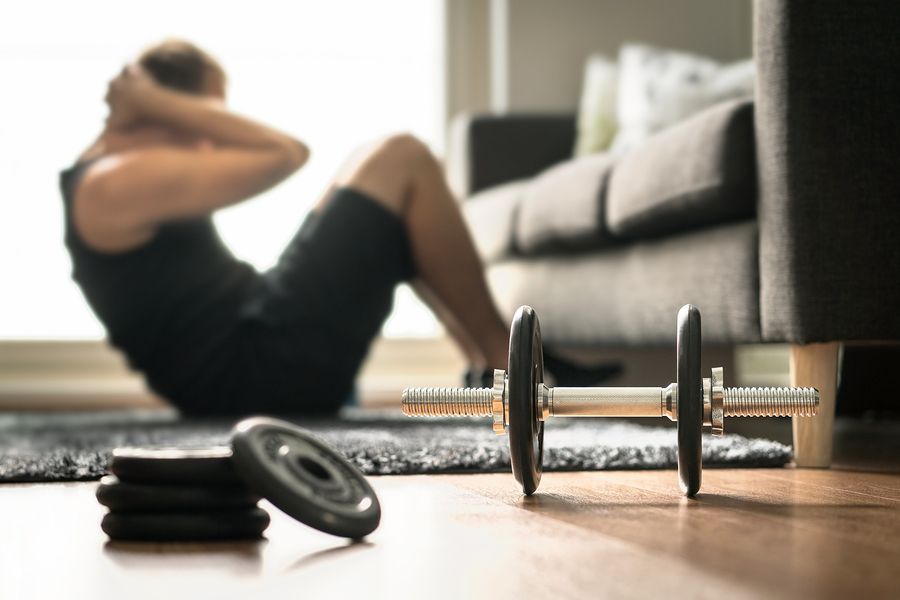Whether you’re gunning to become the next Arnold Schwartznegger or simply looking to add a bit of definition to your muscles, weight training routines are a staple of many people’s workouts.
However, the weights room also carries with it a range of risks – in particular, a very high chance of injury if you go about your regimen the wrong way!
Most experienced weightlifters are well aware of these pitfalls – however, this article isn’t for them.
Rather, this advice is for all the amateur athletes out there. In particular, the ones who dive straight into weight training without properly considering the risks of poor technique (who our Highett physiotherapists deal with on a fairly regular basis!)
So, how can you go about your weight training program without accidentally injuring yourself? Our Highett physios explain…
Common weightlifting injuries
Weight training is a demanding endeavour – it requires concentration, commitment and a carefully thought-out routine if you want to see results, all the while avoiding a potentially debilitating injury.
Unfortunately, not all weightlifters exercise the appropriate level of care or preparation. The result? Injury and pain.
While those who regularly weight train know the risks and work around them, many people who are just starting out or getting back into exercise after a long time away often run into injury and pain.
Many of the clients our Highett physiotherapists treat come in with injuries and pains related to poorly-executed or overenthusiastic weight training routines.
Some of the usual suspects include…
Tennis elbow
It isn’t just tennis players who run into this condition!
Tennis elbow refers to overuse injuries caused by repeated elbow movement – ones that are very similar to the type of elbow movements that accompany barbell or dumbbell curls.
When done incorrectly, your weight training routine can also result in elbow pain consistent with tennis elbow.
Tennis elbow is also common in trades such as bricklaying as well as other sports, including badminton or squash. Find out more about the causes and treatments of tennis elbow here.
Shoulder and rotator cuff injuries
Injuries to your shoulder or any of the individual muscles and tendons that make up the rotator cuff can restrict shoulder movement, as well as result in shoulder pain.
Bench presses put a lot of weight on your shoulder and rotator cuff. Going too far can overload these vital components, resulting in shoulder pain and injury.
Lower back pain
Certain lifts like deadlifts can push your back muscles to their limits – this can put considerable strain on your back and in many cases, results in lower back pain.
Needless to say, back injury is one of the most disruptive types of pain out there – while you can get by favouring one arm over the other, it’s much harder to get by with back pain. After all, your back is central in just about every movement.
Knee injuries
Certain weight routines put a lot of strain on your knees – in particular, squats. This can lead to common injuries such as tendonitis and overuse injuries.
That’s because weight training can put addition weight and pressure on your knees. This can bring your workout to a grinding halt – a situation made even worse when paired with unresolved knee pain or weakness in your knee joint.
Common causes of injury and pain
As with many exercise-related pain, injuries incurred while weight training generally come down to a couple of common culprits.
Going through this list, you’ll probably realise that a lot of these causes pop up time and time again in this blog.
There’s a good reason: these mistakes are extremely common. In fact, there’s a good chance you’re already making them and not even realising it!
Overtraining
We aren’t just talking about those situations where you bite off more than you can chew (though those are certainly a problem too) either – another common problem is creating a routine that pushes your muscles too far.
For all the newbies out there, weight training should be kept to an hour at the most, with small breaks between sets.
Another good idea is to avoid working the same set of muscles more than twice a week, with at least two rest days in between.
Not warming up properly
As with any exercise routine, a good warm-up routine is crucial.
Warm-ups serve a range of functions – among other things, they “prime” your muscles for exercise, improving flexibility and jump-starting blood flow.
All of this improves your strength and flexibility, protecting you from an injury.
Of course, weight training works a completely different set of muscles from, say, going on a 5km run.
As such, your warm-up routine will need to be tailored to your specific training routine.
Unsure where to start? In addition to highlighting potential pains that can stop your progress, an Highett physiotherapist can also help create a warm-up routine that aligns with your training program and your fitness goals.
Poor equipment
While it’s possible to do weight training from the comfort of your own garage, that doesn’t mean that you should.
Why’s that? It’s simple: in many cases, shoddy equipment can lead to injury.
For example, uneven surfaces can lead to ankle joint injuries, as they can affect your footing.
The type of footwear you use can also have an impact, as this can affect stability.
Avoid injury with the help of our Highett physiotherapists
If you ask us, a physio is essential if you want to start exercising again without injuring yourself.
That’s because our work is more than just responding to injuries and pain – preventative physiotherapy is a key pillar of the Physio AUS System.
Our physiotherapists in Highett begin by looking at your medical history and identifying any dormant problems that might turn into major pains – literally.
We’ll devise a unique treatment routine with stretches and exercises that build strength and target the root causes of your pain, all of which allows you to become more active without an injury cloud hanging over your head.
Get in touch today – call our Highett clinic on (03) 9525 6077 or click here to make a booking.

 1300 392 552
1300 392 552

Leave A Comment